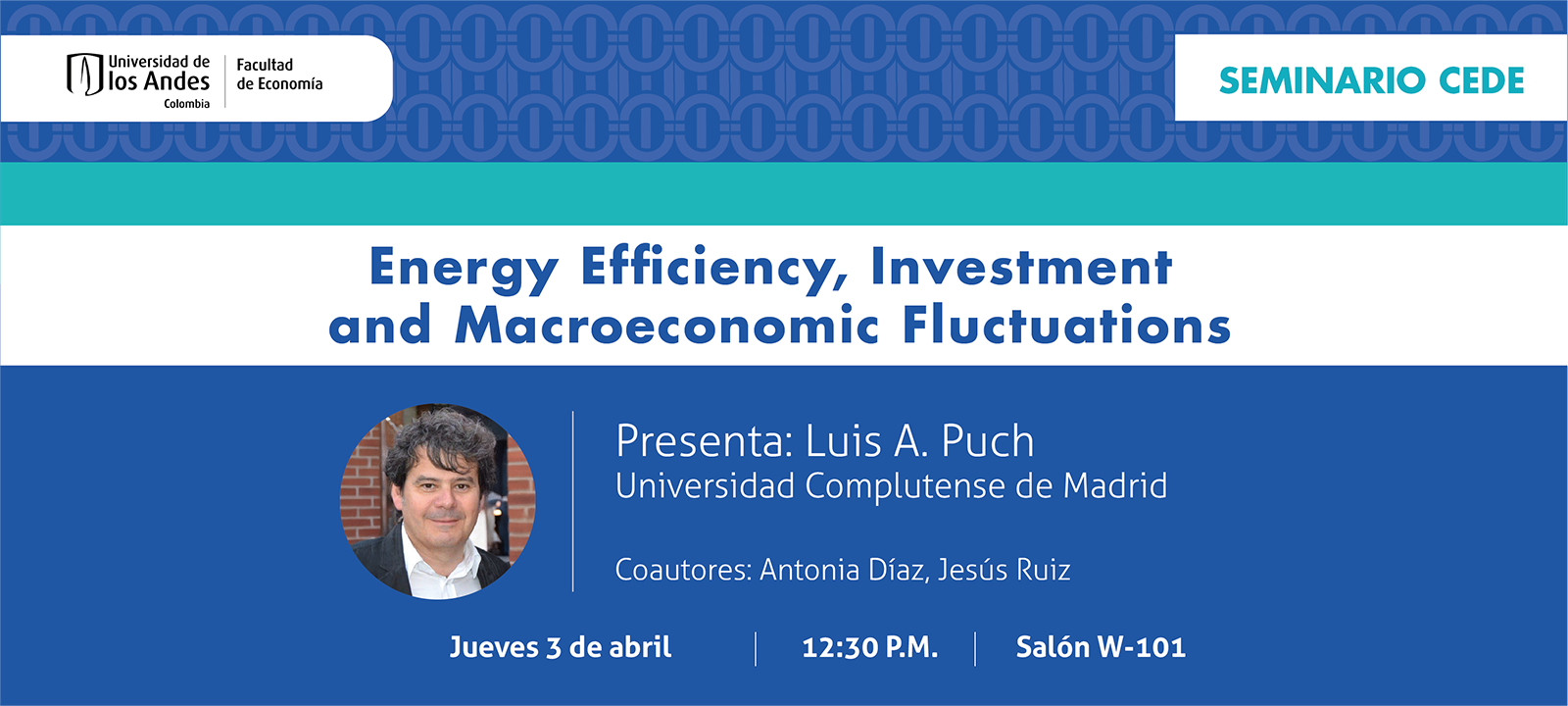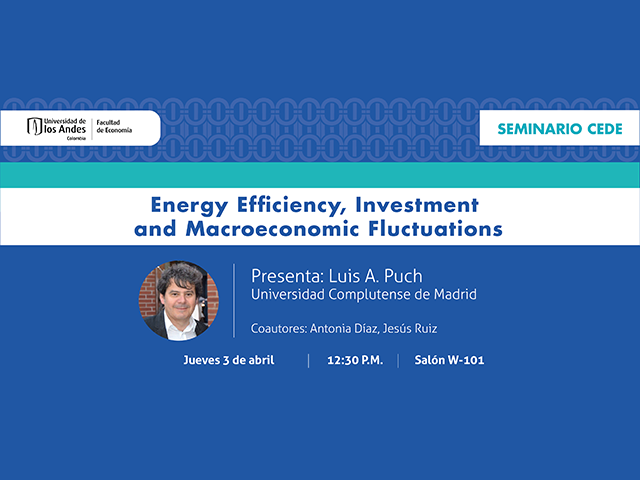Seminario CEDE - Luis A. Puch

In this paper we propose a theory to investigate the importance of investment-specific technical change (ISTC) in shaping the short run response of macroeconomic aggregates to energy price shocks. In absence of ISTC, aggregate energy efficiency in an economy (i.e, the amount of energy use per unit of capital) responds to changes in energy prices. Here we show that ISTC may be a substitute of energy efficiency: embodied technical change rises the productivity of capital and endogenously increases energy efficiency (i.e., the amount of energy use required per unit of quality-adjusted capital). We estimate the model on U.S. data for the period 1960-2022 using Bayesian estimation techniques, and we assess the relative importance of energy price and ISTC shocks. The estimated model offers an explanation to the softened response of the economy to oil price shocks in recent decades compared to that in the 70s: by increasing investment in the years of high ISTC growth, the economy was increasing its energy efficiency, shielding against the impact of energy price shocks.

